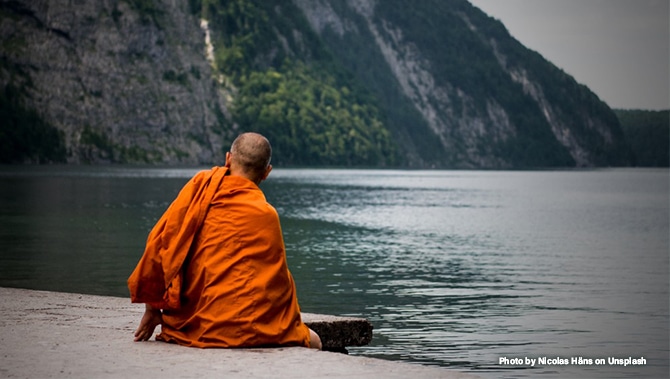Most people live — whether physically, intellectually, or morally — in a very restricted circle of their potential being. We all have reservoirs of life to draw upon of which we do not dream.
-Philosopher William James
In recent months, I found myself trapped and surrounded in a cloud of negativity that sucked away my passions to create and write. I believed in the overarching mission of my full-time work, but borderline despised the day-to-day activities for its lack of creativity and critical thinking, and the amount of busywork that kept my mind too filled and worn out to make space for much else. And let’s not talk about management, or the lack thereof.
Was this what it feels like to hate your job?
As naïve as this sounds, this was a strange sensation for me. For a purpose-driven individual, I rarely do work or study something that I didn’t see a larger purpose in. I firmly believe that if you commit to doing anything, you should do it well, and to do so while at the same time enjoying what you do, you must first believe in its purpose. At this point, I felt disconnected with the purpose of my work.
First world problems? Definitely, but one that is worth pondering over, nonetheless.
After seeking out some friends to discuss my frustration, I was shocked to find how little of them there were that wholeheartedly enjoyed their work. Many expressed a lack of purpose in their work, living day-to-day life in a mechanical manner, and an inclination to quit.
Was this the state of work in the ‘real world?’ Was I being naïve to believe that work should be something to be enjoyed and loved?
Judging by the standards of the ultra-practical society that I currently live in, yes…and I should probably wake up from my fairytale and accept the fact the work is simply a means to help me build a prestigious identity capital and achieve a standard of material comfort in my life.
Yet, the believer in me mustered up the will to refuse to accept that logic.
Amid my mental funk, I picked up a book that eventually enlightened and empowered me to take control of my life once more.
Judging from the book’s title, The Monk Who Sold His Ferrari: A Fable About Fulfilling Your Dreams & Reaching Your Destiny by Robin Sharma seemed to me like just another chicken soup self-help book that tells you to “live your best life,” hence I was reluctant to pick it up at first. Yet the juxtaposition in the title intrigued me, so I dived in, and boy am I glad that I did.
The story takes us on the transformative journey that a successful lawyer, Julian Mantle, goes through to seek wisdom from the sages of an ancient culture about the true meaning of purpose.
One of the first pieces of wisdom that the sages deliver to Julian is through the simple yet profound question,
“you seem to be full of your own ideas. And how can any more go in. . . until you first empty your cup?”
The question prompted me to think about what my cup, or mind, was currently filled with: busywork that put a stranglehold on my creative process and eroded my ability to perform meaningful self-introspection, leaving my inner self feeling empty and withered.
This was my first alarm.
Further along in the book, the sages teach Julian about the “tyranny of impoverished thinking” by stating that on an average day the average person runs about sixty thousand thoughts through his mind, and of those thoughts, ninety-five percent are repetitive.
Sadly, most people have fallen into the bad mental habit of filling their mind with the same negative thoughts over and over again, robbing themselves of their “life force,” and “blocking the enormous potential of their minds to work magic and deliver into their lives all that they want, emotionally, physically and, yes, even spiritually.”
Well gosh, isn’t that me right there for the past few months.
This was my second alarm.
At work, my colleague and I vented about the same frustration day after day; at home, I brought back and released the same waves of negative energy onto my family; at social gatherings and catch-ups, my friends and I vent about the same struggles with work and a missing purpose. Even I was becoming sick of the repetitive buzz I was becoming and stirring up around me.
The book taught me to think about the state of my mental health like a garden, one that needed to be tended to regularly for the sages warn that in order “to live life to the fullest, you must stand guard at the gate of your garden and let only the very best information enter.”
Thus, I chose to distance myself from my social circles for a bit and focused on taking out the weeds in my mental garden and planting more seeds of positivity.
This was as simple as taking a few minutes a day during my lunch break to walk to a nearby park, lie down on the grass, and bask in the warm sunshine while listening to the sounds of nature. In that moment of bliss and serendipity, I was able to fully appreciate life for what it was — a gift.
Another question from the book awakened me even further:
“How could you possibly do good if you don’t even feel good?”
This question ringed my final alarm.
I thought back to the feeling of dread I woke up with every morning before work, the overwhelming desire to unchain myself from my seat in the office, and the number of mental frustrations I had on the job that chipped away at my spirit. I was like a floppy balloon, which leaked the air of motivation, optimism, and creativity, leaving me in a perpetual mode of fatigue.
Yet fatigue, as I will later learn in the book, is a “creation of the mind,” that “dominates the lives of those living without direction and dreams,” for “interest and mental focus give you energy.” It was a revolutionary way to rethink my mental and physical state of being. For the most part, I was not perpetual tired because I lacked sleep or worked and commuted long hours (though that may have had a role as well), I was tired because I could not focus and commit to something that I lacked interest and passion for.
The answer then became clear to me on what I needed to do and I’m happy to say that I’ve taken the steps needed to “empty my cup.”
Quitting my job in the middle of a pandemic where overall cash flow was short and public panic was high is far from ideal and even floating the idea to my family was met with fierce opposition. Yet, I knew that this is what I needed to do to make room for more fulfilling ventures and enriching pursuits.
I believe that my twenties are the most critical period of my life, and as long as I can financially afford to do so, I shouldn’t waste one second of it living with unfulfillment or climbing a ladder that didn’t lead to personal growth.
So although I’ll be thrown back into the turmoil of standing on unstable grounds, I am more grateful than ever for the mental space that I have unlocked once more to deep dive into the personal introspection and creative energy that I need to engage in activities that energizes me (one of them being writing). As I’ve learned:
“most people think just enough to survive, but if we want to live a meaningful life, we must think enough to thrive.”
Some other useful thought tools that I have picked up from the book on how to thrive are as follows:
1. Remember that you are what you think and that your self-image is a self-fulfilling prophecy of sorts.
2. You are also what you eat and you should fill your body with live nourishment (aka things that have not died to be on your plates).
3. “Blueprint” your life: vividly imagine your desires so that you can awaken dormant forces in your mind to turn those desires into reality.
**Action: create a dream book and fill it with all your desires, objectives, and dreams and review this book daily. Let it be a lighthouse to guide you in the direction of your pursuits.
4. Know yourself and what’s holding you back.
**Action: identify and make a written inventory of your weaknesses and face them head on. Remember that fear is nothing more than a mental monster of your own creation and that when you conquer your fears, you conquer your life.
5. Mentally train your mind to transform every event you experience into a positive, empowering one.
6. Capitalize on small victories of willpower to generate momentum to take larger steps on the path towards your ideal self.
**Hence, get up early in the morning, make your bed, go to that gym session that you’ve been putting off.
7. Forget multi-tasking. Harness your mind to focus on the task at hand with rigour and intent, for concentration is one of the greatest assets of the mind and one that is becoming especially hard to come by in the age of social media and digital distractions.
8. Regularly reflect on your life and purpose and make daily incremental improvements.
9. Prioritize your “high-impact” activities: eighty percent of the results you achieve in your life come from only twenty percent of the activities that occupy your time.
10. Create a pit-stop for the soul by engaging in a daily ritual of solitude. Find a place of true quiet to immerse yourself in silence and “smoothen the lake of the mind.”
11. Commune with nature daily: Being with nature also allows you to tune in to the infinite wisdom of your highest self.
12. Read, read, read! “It’s not what you will get out of the books that is so enriching — it is what the books will get out of you that will ultimately change your life. Books do not actually teach you anything new. Books simply help you to see what is already within yourself. That’s what enlightenment is all about.” (This is exactly what I have gotten out of this book)
13. Set your own standards and stop comparing yourself with others for “every second you spend thinking about someone else’s dreams you take time away from your own.”
14. Never sacrifice happiness for achievement.
15. Recognize that the mind is a wonderful servant but a terrible master so harness your energy to let your mind serve you, not the other way around.
Alas, one of the final pieces of wisdom I have taken away is this:
“one of the most tragic things that any one of us can do is to put off living. Too many people are dreaming of some magical rose garden on the horizon rather than enjoying the one growing in our back yards.”
So cheers to living and emptying my cup so that I can fill it with better, sweeter wine ahead!
This blog is published with permission from Ting Zhang. To read more blogs by Ting on Medium – Click here.



